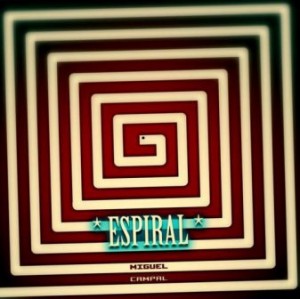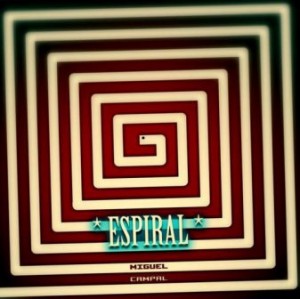
Miguel Campal Playing Live.
Do you remember the post I published last month in which I announced that both Grubb and Miguel Campal had released their respective debut albums? Admit it, you do – it was the closest you came to an epiphany when reading a piece of music-related news ever since you learnt Paul was not dead.
Well, maybe not. But the bit in which I insulted Five For Fighting was fun.
Anyway, that eventful day I promised Miguel I would cover his album on MusicKO. And since I forgot to cross my fingers, now I find myself floating over a strange land, with a sequined showbiz moon keeping me company as I do the hard drive equivalent of spinning his record.
Leaving aside allusions to other artists, arbitrary jokes that only three people would get and quotations from “Chalkhills & Children” (which even less people would understand, notwithstanding I supplied the name of the song and linked to the album it was on), I must say that forgetting to cross my fingers when talking to Miguel was actually a very good thing.
I became acquainted with a really, really fine album in the shape of “Espiral” [Spiral] – an album which is a worthy addition to the imaginary of works detailing how resolution is circumstanced by emotional frailness (try Lucas Meyer’s “Un Accidente Feliz”, and Laura Chinelli’s “Historias de Invierno” for good related listens). An album where the singer manages to turn dejection around, and make it become the kind of beauty that only experience can name between smiles. An album that is “dark, yet glowingly alive”, to rip off some bloke that wrote the preface to a book by Joseph Conrad I once bought in a moment of madness.
Miguel released “Espiral” two months ago, in an online-only edition. And since Miguel adheres to Bob Dylan’s dictum for living (IE, “money don’t talk, it swears”) he decided to make it a free download.

“Espiral” is a pop/rock album in the most vivid sense of the word. Musically, it connotes the work of tunesmiths like Paul McCartney and Noel Gallagher, with a clear debt being paid to the production techniques used in works by either. And the vocal melodies in particular remind me a lot of Blur at its finest.
The lyrics themselves are good in relation to the music, IE neither distracts from each other, and their concomitance is dexterous (the processed ballad “Michi” and the spacious “Deseos” [Wishes] are very organic examples). Yet, they are functional in terms of form. Continue reading

